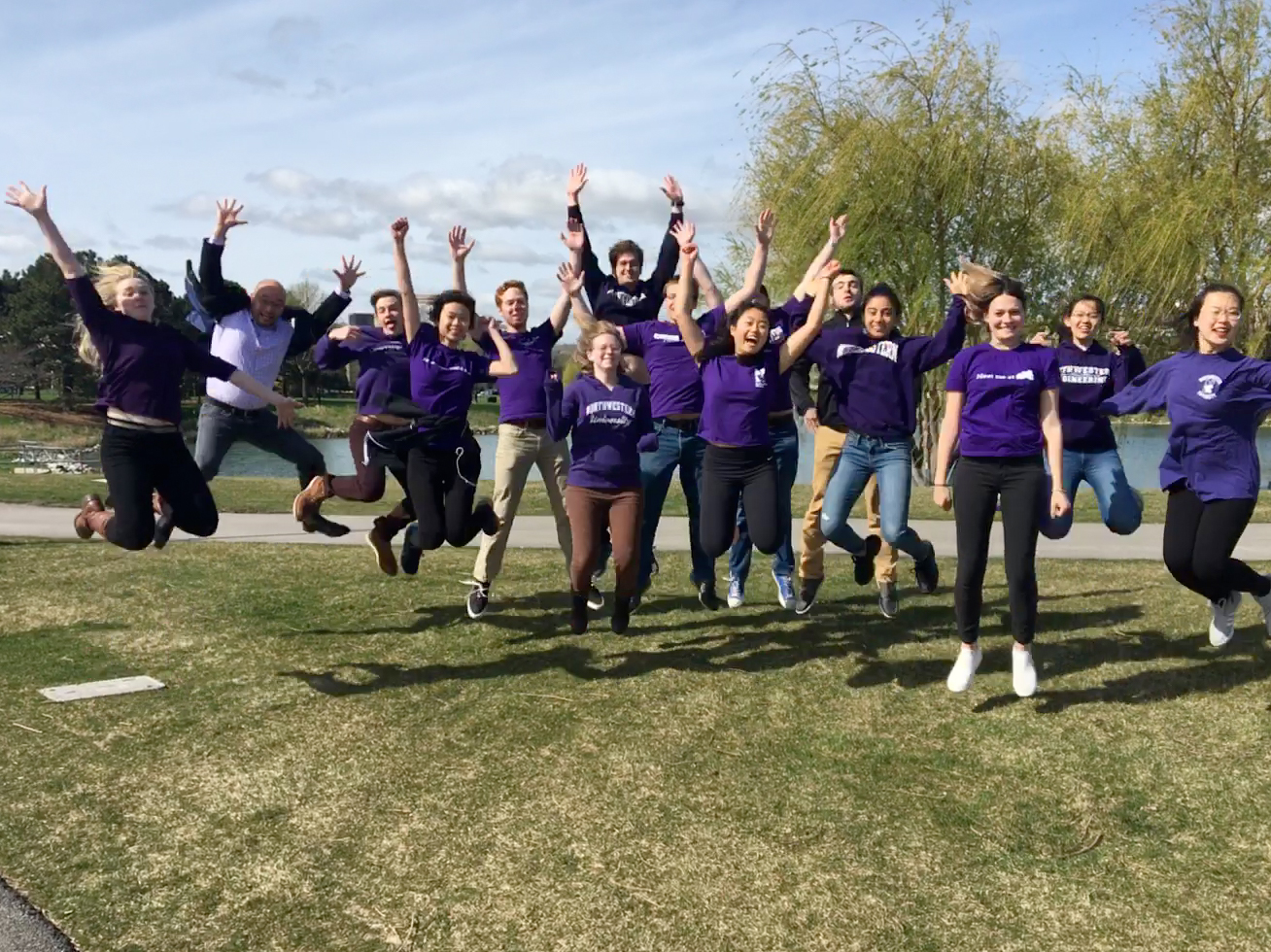
Northwestern: Northwestern University
To help guide their design for a flexible, appealing house marketed for Chicago’s baby boomers, the U.S. Department of Energy Solar Decathlon 2017 team from Northwestern University conducted extensive user research within their local community. Above all, the house, which the team calls, Enable, is designed to respond directly to the potential clients’ needs, as determined by the team’s research. This user-centered design approach allowed the House by Northwestern team to create a potential client couple, Michael and Lisa, and all design and style decisions were made to accommodate for their needs. Knowing that Michael and Lisa value aesthetics and functionality above all, the students wove energy efficiency and sustainability into their modern, sophisticated aesthetic. Constructed with structural insulated panels (SIPs), Enable also includes roof-integrated solar panels, movable interior walls, and an attached sunroom. And, to help Lisa and Michael maintain their good health as they age, the students added air-filtering technologies and a system that monitors VOCs, CO2, dust, and humidity.
Team Deliverables
Design Philosophy
House by Northwestern’s primary goal is to design and build a beautiful, accessible, innovative, elegant, and transformative solar-powered house. Because the house must perform well in the harsh Chicago climate, numerous energy models, solar and shade studies, and other engineering models informed early design decisions about building layout and massing. The team planned the interior to allow for aging-in-place and flexible use of space. Enable exhibits a modern style with simple and clean masses that respond directly to passive design strategies. Renewable materials such as the wood and light colored fiber cement cladding help create a warm residential feeling, and large glass surfaces bring in natural light and fresh air.
Photos
Features and Technologies
- The modern-style Enable integrates energy efficiency and sustainability into practical, sophisticated, and clean design features that appeal to aging baby boomers.
- Modular interior walls are easily reconfigured to accommodate occupants’ changing needs.
- Efficient and affordable roof-integrated solar PV panels are easy to install and replace.
- The energy-efficient and airtight envelope is constructed with structural insulated panels (SIPs).
- Indoor air quality features, including an energy recovery ventilation system, a photocatalytic surface treatment that breaks down airborne pollutants, and indoor houseplants help purify the air.
- Enable includes an indoor air quality monitoring system that tracks VOCs, CO2, dust, humidity, and temperature.
- The house features energy-efficient appliances and includes a sunroom for indoor-outdoor living.
Video
View the video's text-alternative version
Market Strategy
In the city of Evanston, Illinois, home to Northwestern University and part of Chicago’s North Shore, 20% of the population is projected to be 65 and older by 2020, yet only 1% of the current housing stock contains the key features required to support aging-in-place. From the start, the House by Northwestern team closely integrated its team with its target customer demographic and practitioners of construction and energy technologies, as well as architecture and design professionals. The team’s target market ranked the following housing features in order of importance: comfort and livability, high-performance with functionality, easy home maintenance, sustainability, and affordability. The crux of the team’s design efforts was to create a home that balances the needs of the market with the team’s desire to create a sustainable, environmentally friendly home. By packaging energy-efficient and sustainable features into a comfortable, beautiful, accessible, and easy-to-maintain home, Enable offers sustainability without compromise—a home that exceeds the expectations of its target customers.
What's Next
Enable will return to Evanston, where it will serve as a hub for local partnerships related to environmental and sustainability education.
Contact
Maggie Waldron
847-467-6043
Neither the United States, nor the Department of Energy, nor Energetics Incorporated, nor any of their contractors, subcontractors, or their employees make any warranty, express or implied, or assume any legal liability or responsibility for the accuracy, completeness, or usefulness for any purpose of any technical resources or data attached or otherwise presented here as reference material.
